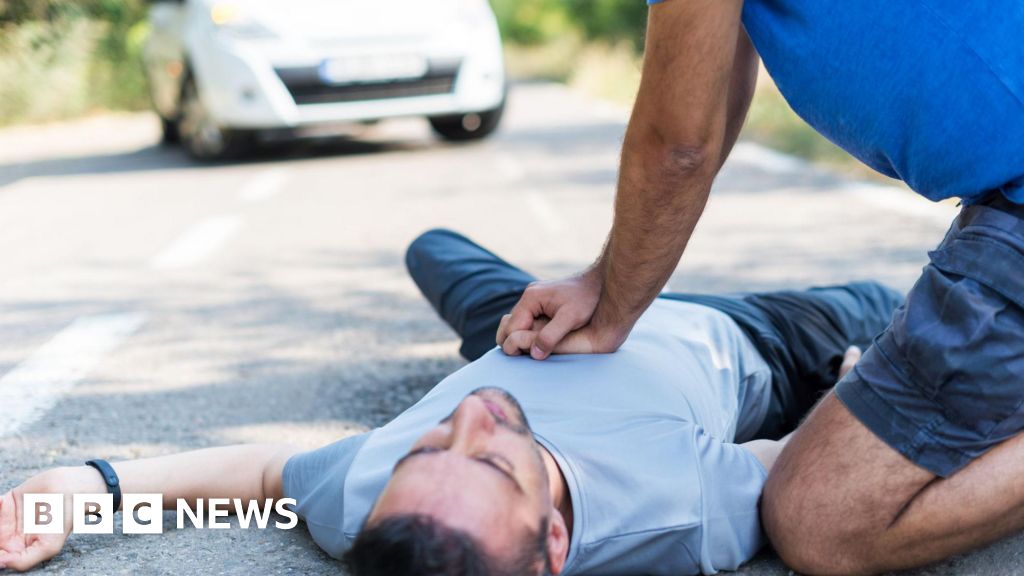Driving theory test to include CPR first aid questions
- BBC News
People sitting their driving theory test will soon need to swot up on life-saving cardiopulmonary resuscitation (CPR) skills, the UKs Driver and Vehicle Standards Agency (DVSA) has decided.
All road users are being encouraged to learn the basics and know how to use a defibrillator in an emergency.
Its hoped the questions, which will be added to the car and motorcycle theory test in early 2026, could prevent avoidable deaths.
Drivers are often first on the scene when someone suffers a cardiac arrest, says the DVSA.
Adding the information into the official learning materials means that the 2.4 million learner drivers who take their theory test each year will have a better understanding of the skills to use in an emergency, it says.
Learning materials have already been updated with the new content, including questions such as "Who can use a public access defibrillator?" - the answer being "everyone".
A defibrillator gives a jolt of energy to the heart, which can help get it beating normally.
The devices are designed to be user-friendly, with clear instructions.
If CPR is given and a defibrillator used within the first minutes of collapse, survival rates could be as high as 70%, evidence suggests. Without it, fewer than one in 10 survive.
If someone is unconscious and not breathing normally, call 999 and start CPR straight away.
This can be "hands-only" CPR to deliver timely chest compressions to get blood pumping.
One of the new theory test questions is about the correct depth to push down.
To carry out a chest compression, the NHS advises:
James Cant, chief executive of Resuscitation Council UK, said: "Were delighted to be working with the DVSA and other partners to introduce CPR and defibrillator awareness into the driving theory test.
"By embedding these life-saving skills into such a widely taken assessment, we can help ensure that more people, from all communities, gain the knowledge and confidence to act during a cardiac arrest."